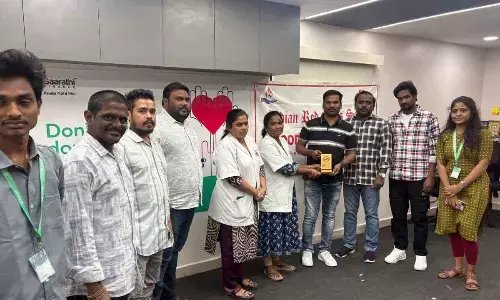Self-reporting for mental disorders low in India: IIT Jodhpur study
Share :

Self-reporting rates for mental health problems are considerably lower than the actual burden of the disease, according to a study by the Indian Institute of Technology Jodhpur on Tuesday.
Jodhpur: Self-reporting rates for mental health problems are considerably lower than the actual burden of the disease, according to a study by the Indian Institute of Technology Jodhpur on Tuesday.
This disparity suggests a significant gap in identifying and addressing mental health issues.
The findings revealed that the self-reporting of mental illness was less than 1 per cent based on the 75th Round National Sample Survey, 2017-18.
"Stigma in society acts as a significant barrier to reporting mental health issues. In today's society, the reluctance to report mental health issues persists due to the prevailing stigma," said Dr. Alok Ranjan, Assistant Professor, School of Liberal Arts (SOLA) IIT Jodhpur, in a statement.
"Individuals, fearing social judgment, often choose silence over seeking help. Destigmatising mental health is crucial to fostering an environment where seeking support is embraced," he added.
The study has been published in the International Journal of Mental Health Systems.
The data was collected from 555,115 individuals (rural: 3,25,232; urban: 2,29,232), from randomly selected 8,077 villages and 6,181 urban areas, included 283 outpatient and 374 hospitalisation cases due to mental disorders in India.
In addition, the study shed light on the significant out-of-pocket expenses incurred by individuals seeking mental health services, largely due to reliance on the private sector.
The study was done based on the logistic regression models and it shows that the individuals with higher incomes were 1.73 times more inclined to report health problems compared to those with lower incomes.
Further, the report showed that the private sector emerged as a major provider of mental health services, accounting for 66.1 per cent of outpatient care and 59.2 per cent of inpatient care.
A mere 23 per cent of individuals hospitalised for mental disorders had health insurance coverage at the national level.
The study also revealed that average out-of-pocket expenditures for both hospitalisation and outpatient care were significantly higher in the private sector than in the public sector.
















